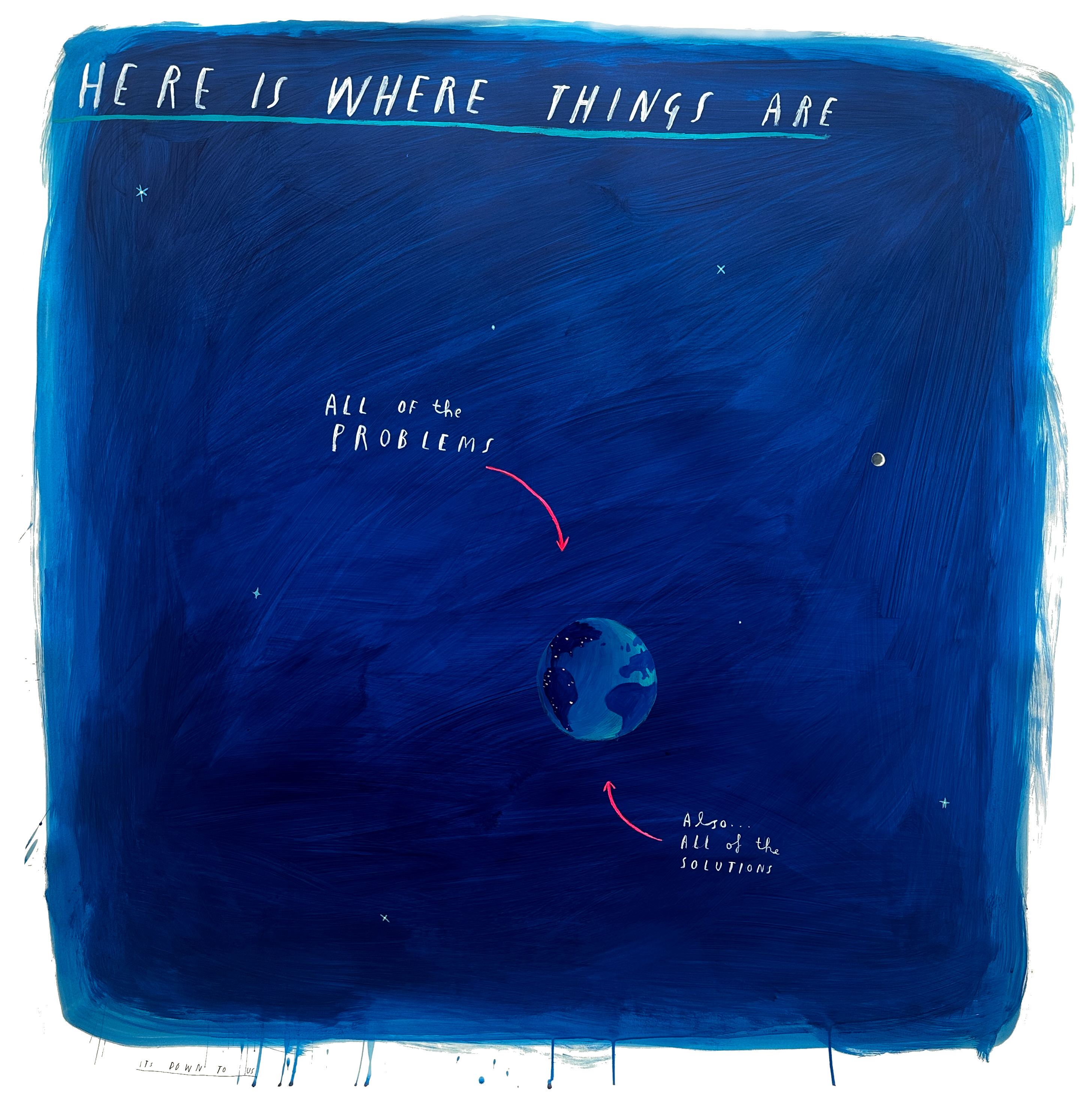So often, articles and essays such as this begin with a gathering of unnerving statistics. Most of us don’t need those anymore: changes brought about by the climate crisis are becoming more tangible with the passing of each year. We smell it in the smoke-tinged air. We feel it in the seasons gone askew.
We exist in a place where all the problems of the universe are present. And the problems we have today really can seem too great to surmount. Too vast for any of us to do anything about. But that’s just it. We think only of the inadequacy of what we alone can do. This is partly because, over the past several generations, we’ve been taught to think of ourselves as individuals—pitted against one another to take what we can, while we can.
A poll conducted by Yale and George Mason University researchers in December 2022 found that nearly 70% of Americans were worried about climate change, and 35% described themselves as “angry” about it. But if we channel our anger into the decision to pursue transformational change, it can infuse us with meaning and possibility. Shifting toward the realization that we—having invented all of the ways we go about modern life—can change those systems, we arguably make a sustainable future more likely. Conversely, the opposite is true. If we believe staving off catastrophe is futile, that belief infuses our thinking, paralyzing our decisions. In other words, if we think we can’t, or think we can, we are right.
And we can, because alongside all the problems that exist only here on earth, there also sit, conveniently, all the solutions we need. While so many of us argue about whose version of the climate story is “right,” others are just quietly problem-solving the myriad issues we face in practical terms, one by one.
There is a scene in the film 1917 in which a soldier on a solitary, highly classified mission gets a lift in a truck with a group of weary fellow soldiers. Their truck gets stuck in the mud after a few miles. The exhausted soldiers in the vehicle are resigned to this fate and seemingly indifferent to their new circumstances. But there is a desperate, pleading urgency in the eyes of the soldier on the mission. As a result, something changes: grasping the importance of the moment, despite not knowing the details, the tired troops suddenly pitch in with everything they have to free the truck. And they succeed.
Right now, when it comes to real climate action, the majority of us are stuck in the mud. We are the soldiers beaten weary by the chaos of our lives, with no room to fit the massiveness of a world-size problem. We feel left out or apathetic because we don’t see where we fit into any “climate community,” or don’t know what we could realistically do as an individual to make a difference. We worry that any necessary changes in behavior would involve a sacrifice, or that we’d lose face by betraying one tribe to go to the “other side.” These problems require story-based solutions.
This moment in history could be the moment when we flick the switch to change tracks—a moment when those with the privilege and agency to do so decide that we’re going to create a new story for today: a story of possibility, opportunity, hope, empathy, and connection. A story that includes everyone. A story in which now is a turning point.
There are hundreds, thousands, millions of brave individuals, communities, companies, and activists already shaping a regenerative future. Getting out of the way of their own egos. Perhaps you are one of them! These are the people, like the soldier on that mission, with the glint in their eyes and the most seductive calls to action—because they’re already taking it.
The results of their courageous efforts are palpable. Despite the many headlines of doom, 2023 has been an astounding year for progress on climate solutions. The inexorable, exponential shift from fossil-fueled power to renewable power has passed a positive tipping point. Same goes for the shift from internal-combustion engines to electric vehicles. Both are epoch-defining success stories for human and planetary health. Solutions exist all around us.
What the world needs is a collective agreed-upon urgency that celebrates our capacity to collaborate. With this comes renewed purpose.
If we root our despair in climate change, then we must root our hopes in its solutions. It’s time to intentionally put our efforts into creating and sharing stories of what is possible. Stories that bring out the most extraordinary aspects of humanity: compassion, kindness, ingenuity, and creativity. These are the stories we can choose to tell. And we must choose to tell them together.
Rivett-Carnac, a member of the TIME CO2 Advisory Council, is an environmental strategist and podcaster. Jeffers is an artist and writer
- The 100 Most Influential People of 2024
- Coco Gauff Is Playing for Herself Now
- Scenes From Pro-Palestinian Encampments Across U.S. Universities
- 6 Compliments That Land Every Time
- If You're Dating Right Now, You're Brave: Column
- The AI That Could Heal a Divided Internet
- Fallout Is a Brilliant Model for the Future of Video Game Adaptations
- Want Weekly Recs on What to Watch, Read, and More? Sign Up for Worth Your Time
